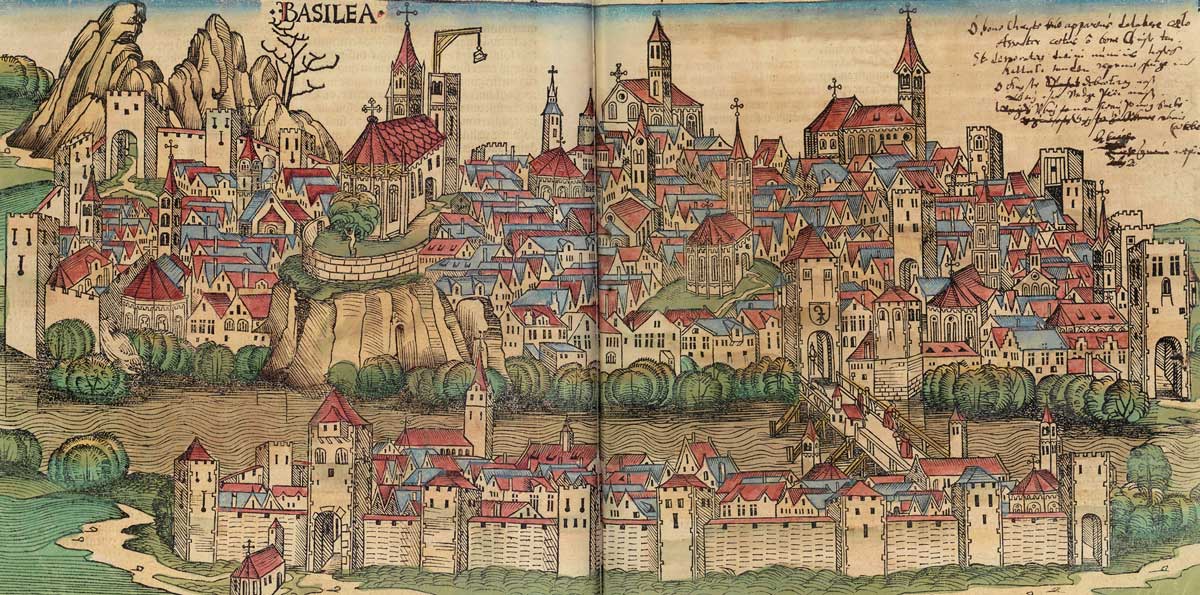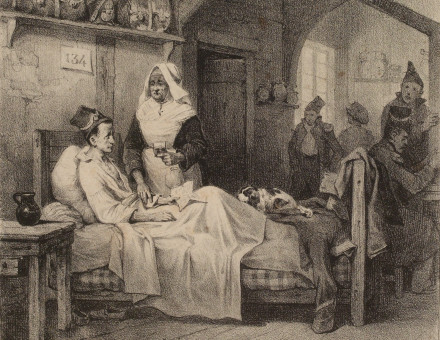The University of Basel founded
Richard Cavendish marks the anniversary of the founding of Switzerland's first university, at Basel, on April 4th, 1460.

In northern Switzerland on the River Rhine, Basel was well known in 15th-century Europe for the Ecumenical Council of bishops and laity held there, which with intervals in Ferrara and Florence lasted from 1431 to 1449. The council was remarkable for its hostility to the papacy. In 1439 it declared Pope Eugenius IV deposed and elected an anti-pope, Felix V, in his place.
One of the laymen at the council was Aeneas Sylvius Piccolomini, diplomat and poet, in his capacity as secretary to the Bishop of Fermo. He shared the council’s attitude, but by 1442 he had decided it was futile. He later took orders, rose rapidly in the Church and became pope as Pius II in 1458. He was soon involved in the founding of Switzerland’s first university, at Basel, which he authorised in a bull of November 1459.
The new university became a stronghold of humanism and the Protestant Reformation. The Dutch humanist scholar and thinker Desiderius Erasmus taught there from 1522 and began his translation of the Greek New Testament there. He left in 1529 when the city banned Roman Catholicism, which for him was going too far, but he returned to Basel to die in 1536. The alchemist and scientist Paracelsus is believed to have been a student at Basel. Other celebrated figures associated with the university over the centuries include the mathematician Daniel Bernoulli, who was a professor there from 1733, and the Swiss art historian Jacob Burkhardt, who taught there in the 1840s and ‘50s. Friedrich Nietzsche was professor of classics at Basel from 1869, C.G. Jung was appointed professor of medical psychology in 1943, the Basel-born theologian Karl Barth was professor of theology from 1935 after escaping from Nazi Germany and the German philosopher Karl Jaspers was freed from a concentration camp in 1945 and went to teach in Basel. The university is also known for its library of more than three million items, which goes back to its earliest days and is now Switzerland’s largest.




